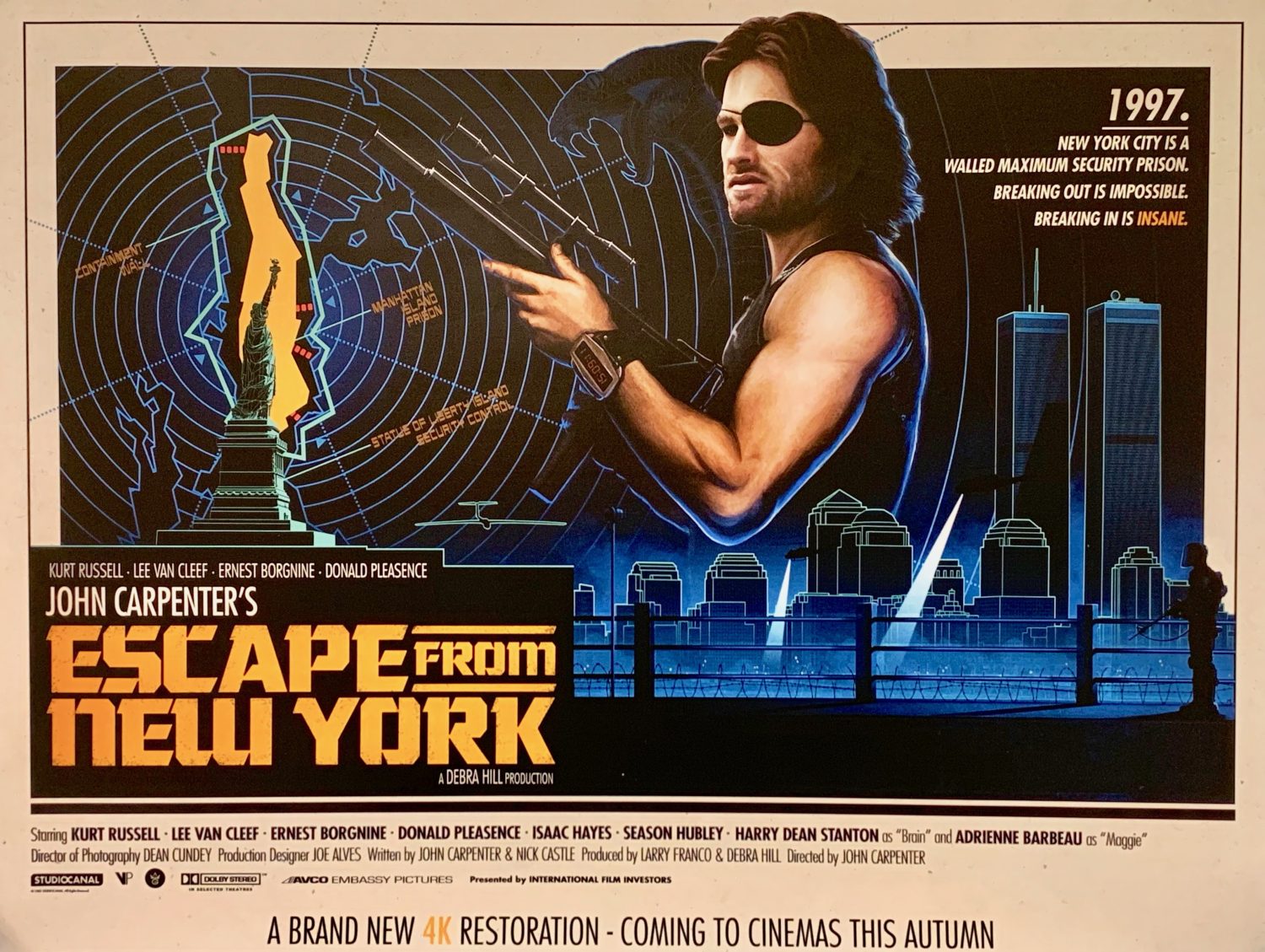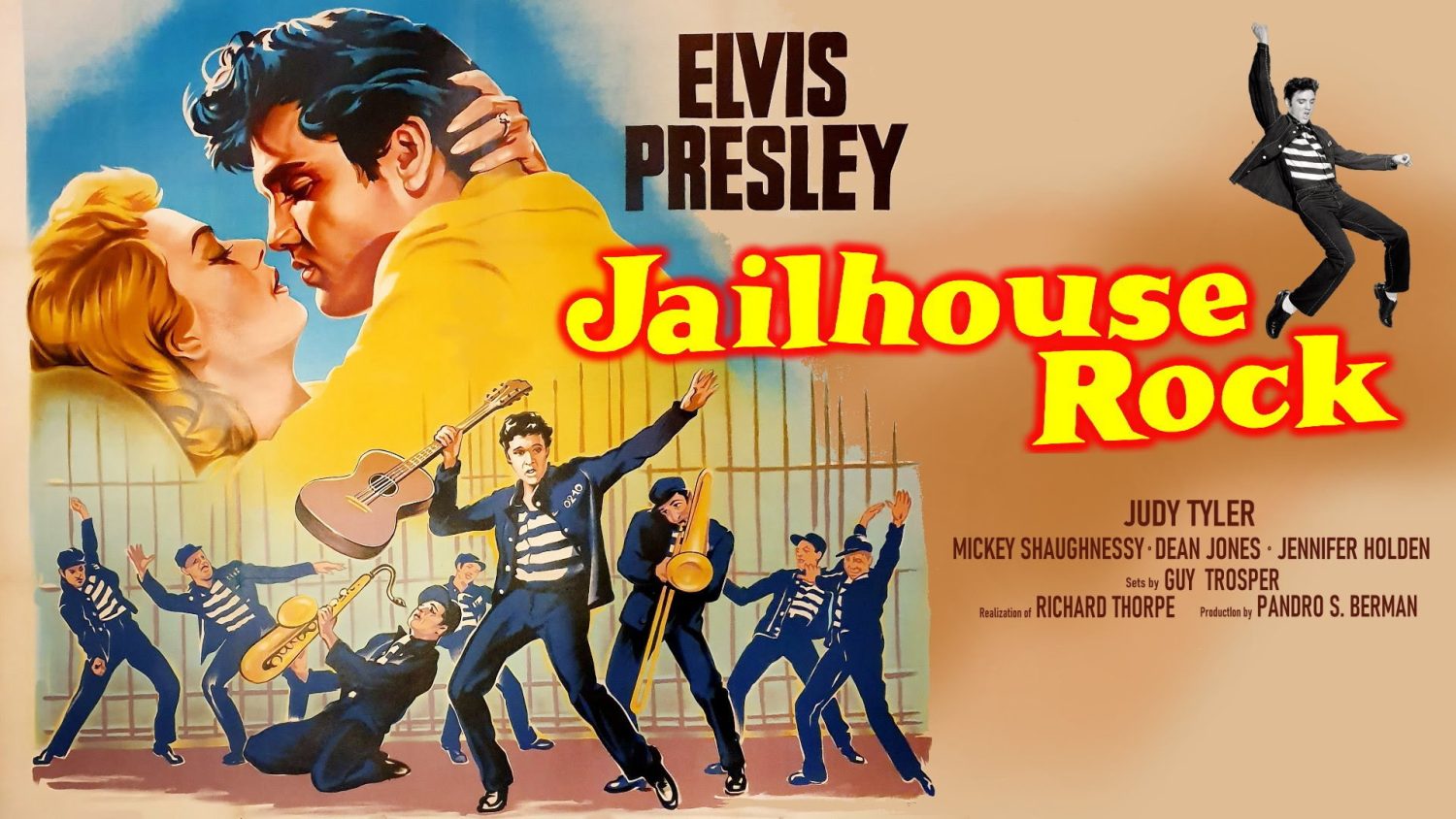You’d have thought that the events of the last couple of years would give people more than their fill of confined spaces, with only a limited quota of outdoor exercise each day.
Not so it seems, for the Chiltern Film Society. On Wednesday, our doors open for their penultimate screening of this season: the gritty drama Night Of The Kings (2020).
Not a timely nod to the indie disco that took place at Buckingham Palace following our current monarch’s recent coronation, Night Of The Kings is a brutal fantasy drama, set in Ivory Coast’s MACA central prison. The story sees the notorious penitentiary ruled by the inmate King (the Dangoro) Blackbeard. Blackbeard is terminally ill and as such, prison law dictates that he must take his own life. To prolong his reign, Blackbeard orders a new prisoner, dubbed as Roman (played by Kone Bakary), to tell a story to his fellow detainees, during the rising of the Red Moon. Should the story finish before dawn, Roman will be murdered. Roman proceeds to spin his tale of kings, queens, mysticism and battles, adding embellishments and plot twists out of necessity, as proving his storytelling skills becomes a matter of life or death.
Night Of The Kings blends the stark realities of prison with vibrant images painted through Roman’s storytelling, and thus pays homage to an Ivorian oral tradition. Written and directed by Philippe Lacote, the film has received critical acclaim and many international accolades, and a nomination for Best International Feature at the 93rd Academy Awards.
A brief history of crime…
Films set in and around prisons have long been a cinema staple.
One of the first, and very influential, films of the genre was The Big House (1930), a melodrama starring Robert Montgomery, Wallace Beery and Chester Morris, and was inspired by a spate of prison riots that had taken place in the previous year. The film was notable for elevating Beery into a talkies star, having previously made his name in Hollywood’s silent era. It was also made before the Hays Code, which came into force in 1934, and so did not have to adhere to the strict censorship guidelines of the films made after that time.
Charlie Chaplin’s Modern Times (1936), focuses on the Little Tramp and his comedic misadventures in and out of prison. In contrast, in Brute Force (1947), Burt Lancaster’s Joe Collins attempts to instigate both a riot and an escape plan as a protest against sadistic guards and gruelling conditions of the jail, with inevitably tragic consequences.

A solitary performance
The one man against the system trope, traditionally connected with prison dramas, has acted as a showcase for many actors. Moody looks, painstaking struggles against the odds in a system that doesn’t care, and a quest for justice and liberation make even the most hardened of criminals worth rooting for, if portrayed in the right light.
Steve McQueen in The Great Escape (1963) (complete with motorcycle), Paul Newman in Cool Hand Luke (1967) (complete with eggs) and Clint Eastwood in Escape from Alcatraz (1979) (complete with chrysanthemums) are iconic examples of this. The stories were gripping, the leads very charismatic, and the BBC, particularly for the Boxing Day schedules in the 1980s, had a lot to be thankful for.
Michael Fassbender was cast in his first starring role as the IRA protester Bobby Sands, in Hunger (2008) helmed by first time director Steve McQueen. (Not that one – this one is British, although the name does strangely seem to pop a lot in this article…) The film was based on the events of the second IRA hunger strike, which Sands led, in the Maze prison in 1981. Under medical supervision, Fassbender embarked on a vigorous exercise regime and a diet of 900 calories a day for ten weeks, and the result shot him to prominence.

What is it good for?
The Great Escape is also part of the Prisoner of War sub-genre which was highly popular, piling on the hardships and feats of endurance in an even bleaker situation. Jean Renoir’s La Grand Illusion (1937), Billy Wilder’s Stalag 17 (1953), The Bridge on the River Kwai (1957 – another Christmas favourite), Empire of the Sun (1987) and Rescue Dawn (2006) – both starring a youthful Christian Bale (purely speculation here, but perhaps immersing himself in such roles during his formative years had a major influence on his later career choices) and Land of Mine (2015), are a few titles to capture your attention.
If you can’t do the crime…
Prison life can be brutal and, as we see in Night of The Kings, the hierarchy within the institution is often depicted with its own internal governance. Trust must be earned, loyalties are fragile, violence is rife and there’s always at least one guard who has been corrupted by power and has become a sadistic monster. The literal light at the end of the tunnel, to elevate the relentless misery, is usually offered in the form of the prisoners hatching an escape plan. What larks, eh?
Le Trou (1960), Papillon (Steven McQueen, the actor, again) (1973), Midnight Express (musicals please, Mr Parker, keep it light!) (1978), Scum (Who’s the Daddy? You are Ray, but please leave the budgie smugglers out of this!) (1979), The Shawshank Redemption (1994), The Green Mile (1999) (both based on stories by Stephen King), A Prophet (2009) and R (2010) all explore the bleakness of life within the criminal justice system. As if wanting to fully immerse the audience into the brutality of the environment, most of the films have a running time much longer than 90 minutes. To paraphrase Mark Kermode and Simon Mayo on their film review podcast, ‘You’ve got to watch a lot of Shawshank before you get to the Redemption’.

Take a (prison) break from the hardship
Fortunately, there is some respite.
In Escape from New York (1981), Kurt Russell is ordered to rescue the American President from Manhattan Island, which has become a maximum security prison in the dystopian ‘future’ of 1997. (But what would become of Trump Tower..?) And failure to comply with Nic Cage’s request of putting the bunny back in the box would have all incarcerated passengers meet a very sticky end in Con Air (1997 – was the aircraft on its way to New York perchance?).
Stir Crazy (1980) sees Gene Wilder and Richard Pryor wrongfully convicted for bank robbery and sentenced to a 125 year jail term, with hilarious results. This highly successful comedy was directed by legendary actor Sidney Poitier (no, I didn’t know that either).
Vinnie Jones, Danny Dyer and Jason Statham (haven’t seen this, but I’m gonna…) star in the prison football comedy Mean Machine (2001), while I Love You, Philip Morris (2009) sees Jim Carrey star as a man who breaks out of prison four times to be with his soul-mate (and one time cell-mate – ho, ho!) Ewan McGregor.

Elvis bopped in the big house during Jailhouse Rock (1957), Catherine Zeta-Jones and Rene Zellweger both reached for the gun and ended up strutting the Cell Block Tango in Chicago (2002), while Hugh Grant took a gamble on arguably his best role, and reignited his career, in Paddington 2 (2017) – but don’t make a song and dance about it…
So there you have it. A timely article on cellular cellmates.
I put it to the jury that the best way to experience life behind bars is from the comfort of a cinema seat, or your sofa. Anywhere else makes it more difficult to obtain Maltesers.
On a side note, I’ve happened upon a podcast called You Must Remember This, about the history of Hollywood and stories that you perhaps didn’t know. If that sounds like your dirty martini, and you can get beyond the niche delivery of the narrator (I listen at 1.25 speed), it’s well worth a try. (I am not affiliated with the podcast in any way.)

Stay out of trouble, folks, but get to The Elgiva for Night Of The Kings.
See you at the movies!
Sarah
Information about the Chiltern Film Society can be found HERE




















